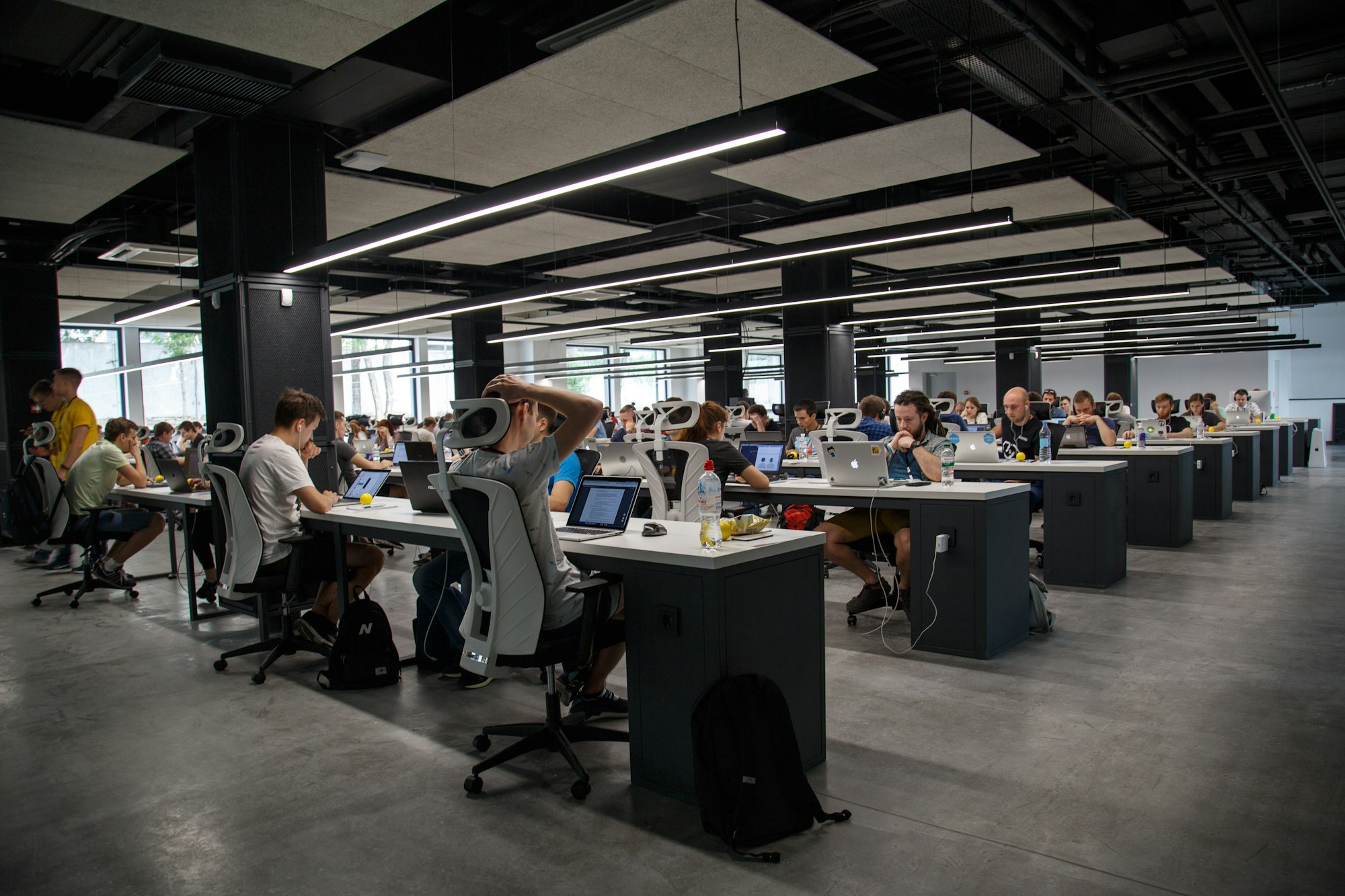Open Offices are evil, Long live Open Offices!
From loving small open offices to hating large open floor plans. Why 100+ person open offices destroy productivity and what companies can do to create better work environments for developers.

Until I joined a large company last year, I was convinced that Open Floor Plans were brilliant. Easier communication, Saving space, Team culture, ... But over the last year, I have grown to hate them with passion.
My experience of Open Offices until last year was like this :
- 4/5 developers in the same room
- Sales in a separate room, with isolated glass doors
- Separate rooms for 'alone' time, or pairing sessions
- A few relaxing times a day, playing nerf gun or simply drinking coffee
The actual experience
My current experience of Open Offices is more like this :
- 100+ people on the same floor, organized in a semi random way. This on 6+ floors, in various locations
- Development, Management and Sales all in the same setup. A great way to be able to listen to 5 concurrent phone conversations.
- Teams that don't have anything to do with each other, and unsynchronized Agilish events. Meaning that at any point in time, at least one team is having his Stand-Up, Retro or any other fun activity
- A single way in the building, meaning people are constantly passing-by you. Most often in and animated interesting conversation with a colleague
- Business teams literally playing music on speakers to have a fun environment
- Oh, and I forget the last two weeks, where a TV is placed in the center of the building to watch the world cup!
Over the last months, I can count on one hand the amount of times I felt like I was in a productive setup where I could work efficiently. I welcome the summer and people going on vacations with utter joy.
Usual signs of sadness
People, especially developers, try to protect themselves in various ways depending on how creative they are. I have seen
- Noise cancelling headphones of course. Usually paid on personal funds.
- Protective walls of whiteboards and TVs. Usually as efficient as putting a wet blanket on a door to protect yourself from a fire...
- 'Deep work' signs, with schedules at which silence should be maintained. Do speed limits signs prevent people from speeding? The fancy versions involve a decibel meter.
Now, I don't deny that Open Floor plans do have some obvious advantages. But they are not the ones usually advertised:
- Easier to move people around as the company needs to adapt, reshuffle its teams, ....
- Cost savings in setting up the workplace
- A feeling that everybody is busy, and a quick overview of how teams are doing
Counter measures
The whole world focuses on raising the velocity of developers. Being both a manager and a developer, it pains me to not being able to provide my engineers with what they need most : a productive environment.
Here are a few things I did to attempt to alleviate the pain :
- Simply ask for people to quiet down :).
- Steal a few tables and hide them away in one of the meeting rooms. Those are especially useful for pairing sessions where white noise should be kept to a minimum.
- Simply allow for people to work from home once a week (and sometimes more). This is the simplest way to get people to work in a quiet environment, though it requires the team to know each other quite well.
- On the side, I am also experimenting with taking data about noise at the workplace, to see what is the typical level on a daily basis. This could be useful for higher management.
Final words
Now, are Open Offices intrinsically bad? I don't necessarily think so. But putting more than 10 people in the same room seems very unlikely to produce good results. Especially when mixing people with very diverse roles, such as product or sales members that need to communicate a lot together with engineers that need silence. A better setup in my humble opinion would be :
- Team sized offices. Open Office at the micro level
- A deep work room, for work requiring silence for each team.
- A pool of conference rooms, where people can get on the phone and more generally hold meetings.
With today's technology, it doesn't seem crazy difficult to put in place, especially considering sliding walls for example.
And if that is still not possible, could companies please at least focus on allowing remote work for their engineers? The amount of study on the subject is large enough to show the obvious benefits of this method.
In the end, I wonder if to understand this, you don't have to be a developer yourself. Why would people need complete silence after all?
